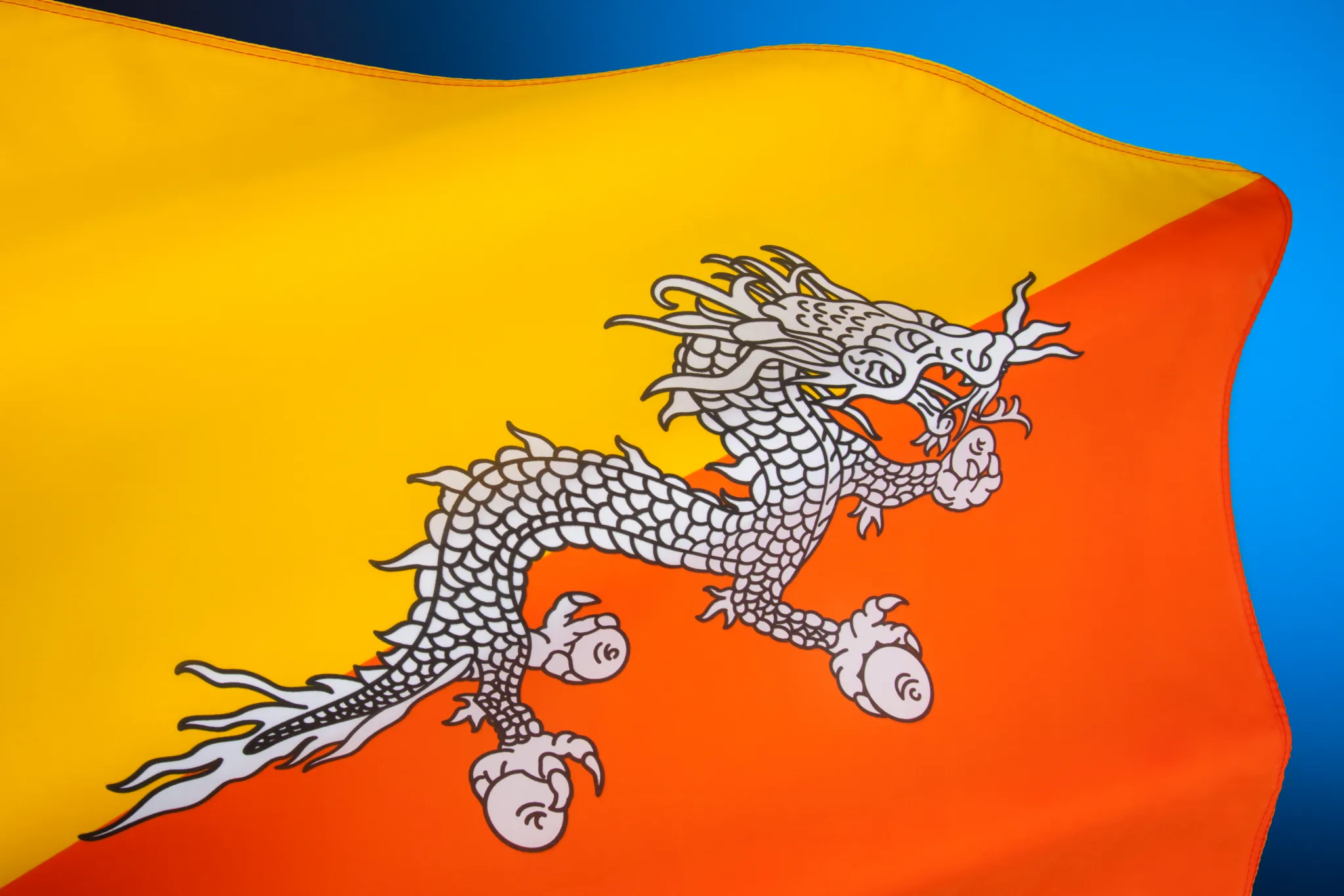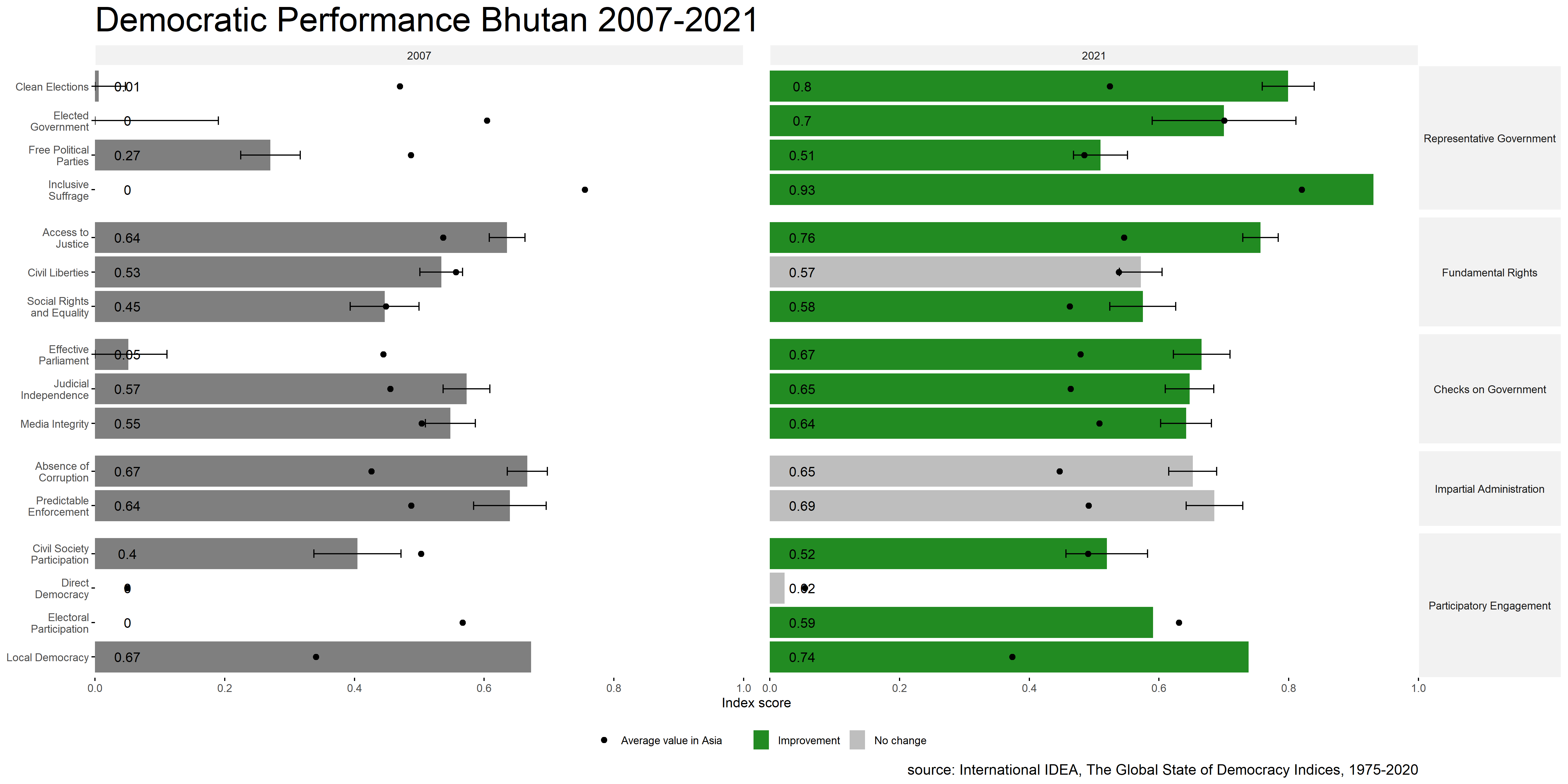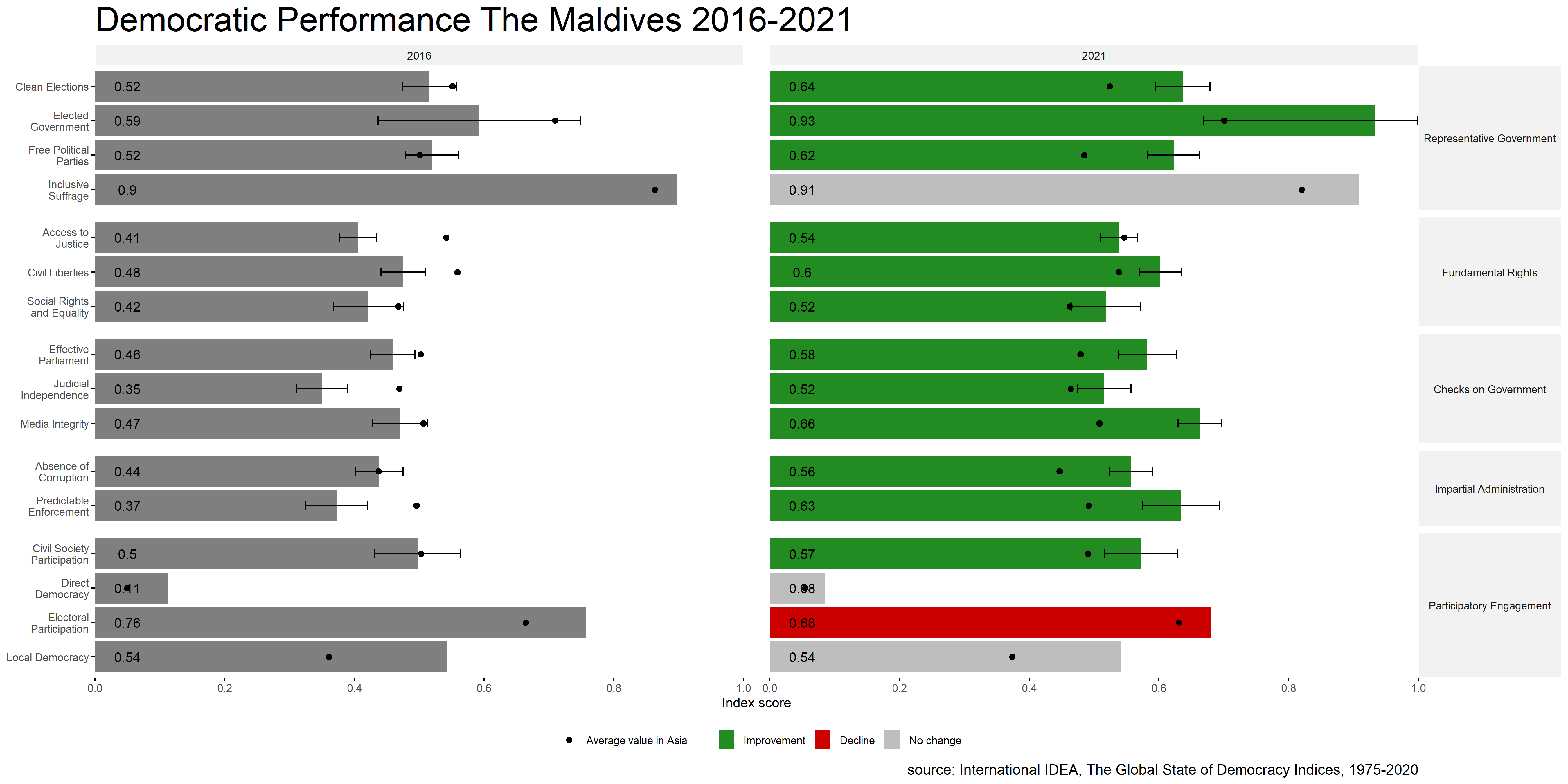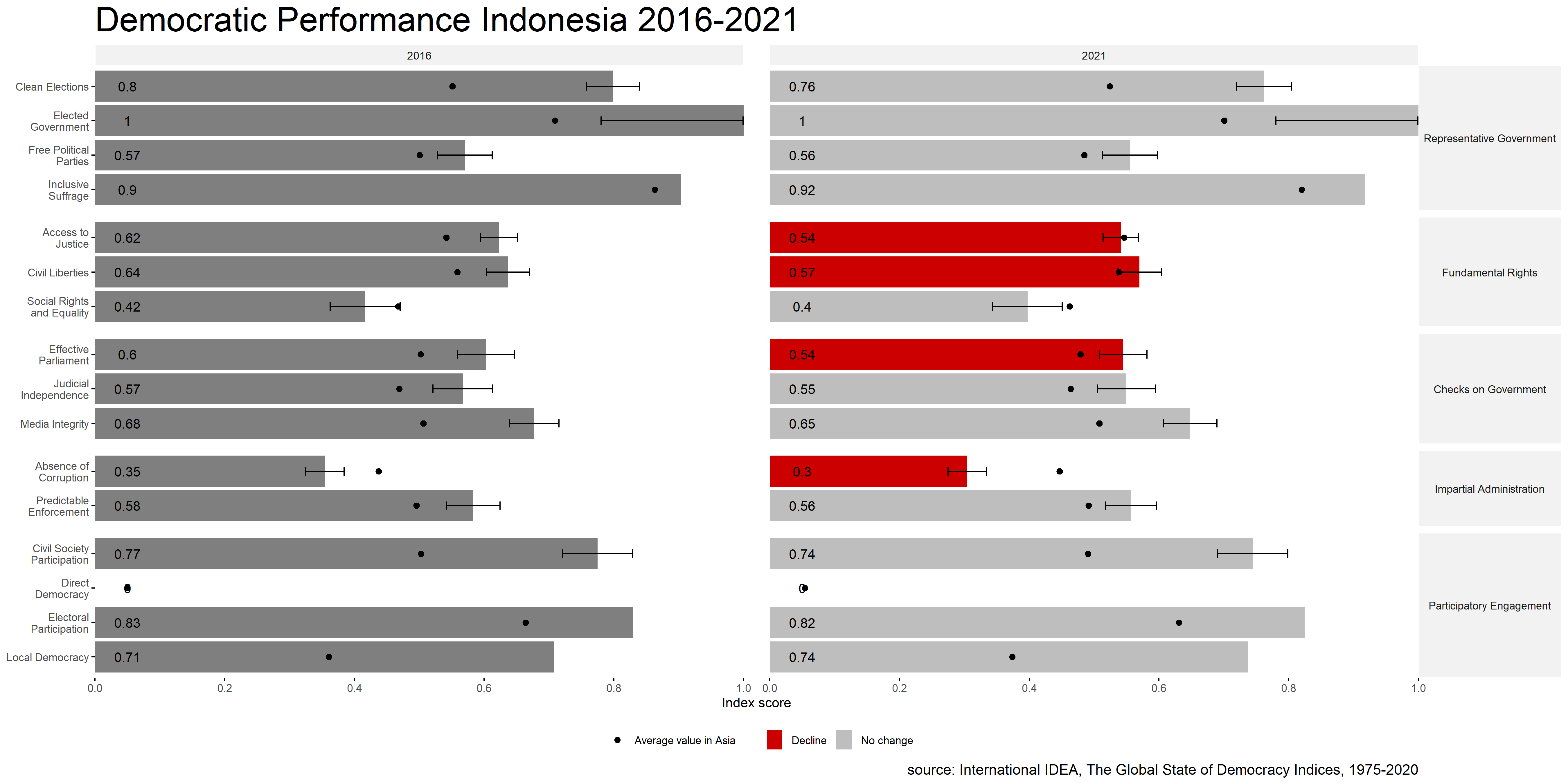Democracy Day 2022: Hidden Dragon, Falling Garuda – Untold Declines and Success of Democracy in Asia and the Pacific

Emerging from the most chronic impacts of the Covid-19 pandemic, countries in Asia and the Pacific region are facing challenges as governing systems in the region grapple with the stressors associated with the pandemic.
In some cases, authoritarian and hybrid regimes have further suppressed democratic ideals, most notably in Afghanistan and Myanmar. The situation in both countries has continued to worsen while simultaneously falling out of the global media cycle. In others, democracy has stagnated or receded. Yet elsewhere, democracy has begun to self-correct in the wake of declines. New challenges have put old, established democracies to the test and nascent democracies are grappling with complex issues in delicate social contexts. On Democracy Day 2022, International IDEA provides an overview of the hidden declines, and hidden successes, in the Asia Pacific—home to some of the world’s most diverse and populous democracies and authoritarian regimes.
Many democracies made advances during this unprecedented period and have even strengthened in key areas such as the provision of representative government.
South Korea demonstrated admirable progress under the Clean Elections sub-attribute, proving that emergencies do not have to curtail access to voting. New Zealand provided an example of creating space for legislative opposition during the state of emergency, and Taiwan countered disinformation around the Presidential elections with both humour and speed.
Perhaps one of the region’s most hidden success stories, Bhutan’s performance has also been striking, particularly when considered over the course of more than a decade. In 2008, Bhutan enacted and adopted its first Constitution, providing the legal framework for a democratic system, and the first ever parliamentary elections. Jumping from 0 in the sub-attribute of Elected Government in 2006, the Himalayan nation progressed quickly to 0.7 in 2016, where it remains currently. Gains are also being made in Access to Justice, improving from 0.69 in 2016 to 0.76 in 2021.
“Bhutan, also known as Druk Yul, meaning the land of Thunder Dragon, must be one of the few countries in the world which transitioned from monarchy to democracy in a totally peaceful and top-down manner. As result, Bhutan saw rapid rises in democratic indicators following democratization in 2008. Over the last five years, however, concerns have been raised about media independence and access to information,” said Leena Rikkilä Tamang, Director for the Asia and the Pacific region
The Maldives has demonstrated notable improvements in four of the five main democracy attributes, specifically in the Elected Government sub-attribute, which shot ahead from 0.59 in 2016 to 0.93 in 2021. Maldivian journalism improved within the Checks on Government attribute, with media integrity lifting from 0.47 to 0.66. The effective control of executive power is crucial in any thriving democracy, with elected representatives held to account by external actors such as a free press.
Despite these successes, the region has also experienced some worrying declines. In one of Asia’s most populous democracies, Indonesia, significant regressions have resulted in the country being downgraded from a mid-performing to a weak, democracy. Slipping most noticeably on Fundamental Rights, both Access to Justice and Civil Liberties are two areas that have raised the alarm for democracy defenders as the country prepares for the 2024 elections. The Absence of Corruption has also deteriorated significantly, dropping from 0.35 to 0.3.
“Some of the main drivers for democratic reforms in Indonesia more than 20 years ago were corruption, collusion, and nepotism. Today, as the GSoD data shows, anti-corruption forces are losing and are in danger of being annihilated if the current trajectory persists,” said Adhy Aman, Senior Programme Manager in the Asia and the Pacific office. Indonesia’s journey from authoritarian regime to a vibrant democracy has been one of the success stories of the 21st century—and those defending Indonesia’s democracy deserve all the support.
In Mongolia, the arc of democracy is also trending in the wrong direction. Declines in Fundamental Rights, Checks on Government, Impartial Administration and Participatory Engagement, a total of four out of the five attributes, have sounded the alarm. Media Integrity has taken a particular blow, currently sitting at 0.59, down from 0.68 since 2016.
Perhaps East Asia’s most reliable democracy, Japan has shown signs of stagnation, rather than progress. Indicators show almost no changes in recent years, except for declines in Effective Parliament, which is now down to 0.73 from a more promising 0.82. A repressed media environment is a warning signal to democracy advocates —freedom of the press is crucial to the health of any democracy and empowers voters to make informed decisions during elections.
Click here to explore the hidden stories in Asia and Pacific’s GSoD report.







